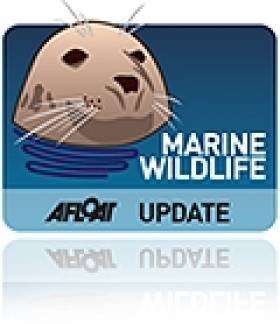Displaying items by tag: Bettystown
Lifeboats From Skerries and Clogherhead Respond to Report of Children Adrift on Inflatable
Volunteers at Skerries RNLI raced into action on Friday afternoon (10 June) around 1pm following a 999 call reporting two children being blown out to sea on an inflatable from Bettystown beach.
The crew encountered heavy squalls heading north to the location in their Atlantic 85 inshore lifeboat, and with the increased risk to the casualties they requested that Clogherhead RNLI in Co Louth assist in the search.
As the team from Clogherhead were making their way south in their all-weather lifeboat, Skerries RNLI located the casualty vessel — which turned out to be a yellow kayak containing personal belongings but no one on board or in the water nearby.
Dublin Coast Guard issued a Mayday before tasking the Dublin-based Irish Coast Guard helicopter Rescue 116 as well as the Drogheda Coast Guard land unit.
The lifeboat from Skerries immediately began a search pattern in the area, while Clogherhead RNLI commenced a parallel search of the shore from the mouth of the Boyne heading south.
Shortly after the search patterns had begun, Rescue 116 requested Clogherhead RNLI to divert from their course to investigate an object in the water near Gormanstown beach.
However, as they were making their way to the coordinates given, Dublin Coast Guard reported that the owners of the kayak had made contact and confirmed that they were ashore in Bettystown and were safe and well.
The Mayday was cancelled and all units were stood down and returned to their respective bases.
Conditions at the time has a Force 4-5 westerly wind with slight swells and good visibility. There were occasional strong squalls with winds increasing to Force 6 and visibility reduced to poor.
Speaking about the callout, Skerries RNLI press officer Gerry Canning said: “There were two black back supports in the kayak so it’s very easy to see how the person who dialled 999 and asked for the coastguard genuinely believed that someone was in difficulty.
“Thankfully in this case it was a false alarm, but they did exactly what we want people to do when they see someone in trouble.”
Landsailing European Champs for County Meath in 2017
Ireland will host the the 2017 Landsailing European Championships on Bettystown beach in County Meath.
Ireland's bid by the IPKSA to hold the 2017 European Sandyacht Championship for three of the International Landsailing classes was made with the support of Meath County Council and Boyne Valley Tourism. Ireland last hosted the FISLY European Landsailing Championship in 1983 held in Newcastle, County Down.
The event will be held in September 2017 on the expansive beaches of Laytown & Bettystown where over 100 of the best land sailors in Europe will race over a five day period on Irelands East Coast.
The Meath coastline has always been a popular venue for national and visiting land sailors and is no stranger to this type of sailing as the Irish Power Kite and Sandyacht Association (IPKSA) regularly hold events there.
The Standart Class Sandyacht which will compete in Ireland in 2017 is a popular International Monotype in which Irish sailors have participated for a number of years. The Miniyacht Class is just that, mini sand yachts that are agile and fast and this is probably the fastest growing class of sand yacht world wide, these craft are sailed for fun and competitively by land sailors of all ages. In the last IPKSA event three generations of one family competed in miniyacht class.
The third class which will be competing in the 2017 European Championships in Ireland is the Class Promo, these are a class of sand yacht with a 5.5 sqm sail that are extremely popular across Europe and the Americas amongst youth clubs and land sailing schools.
According to promoter Alan Watson, opportunities exist for interested sailors to get involved in sailing and possibly competing in EC17 as the IPKSA wish to assemble teams to participate in all three classes and will provide training for new members who may be interested in the challenge.
Arrangements are also being made with the French Federation for training camps to be held in France where, say organisers, over 200,000 people each year participate in landsailing, places will be available for younger Irish landsailing pilots with an eye on future European titles and to assist fast track high performance land sailing
Whale Rescued In Meath Stranding Drama
#MarineWildlife - Skerries RNLI joined a number of groups in assisting a beached whale back out to sea at Gormanston in Co Meath earlier today (Thursday 20 June).
The volunteer lifeboat crew launched their inshore lifeboat shortly after 10am following reports from the Irish Whale and Dolphin Group (IWDG) that a 25ft pilot whale had beached in the area.
The lifeboat helmed by Joe May, and with crew members Emma Wilson, AJ Hughes and Laura Boylan onboard, made its way to the scene where May got into the sea and helped manoeuvre the whale back into deeper water.
Skerries RNLI then shadowed the whale guiding it out to sea, preventing it from turning back to shore by positioning the boat in its way. The lifeboat did this for about 25 minutes until the mammal was well clear of the shore.
Other agencies on scene included Skerries coastguard, the Defence Forces based at Gormanston, the IWDG, Boyne Fishermen’s Rescue and Irish Coast Guard helicopter Rescue 116.
Meanwhile, RTÉ News reports that a second whale was found dead on the beach near Mornington, north of Bettystown.
Despite initial fears that the whale was the same one rescued in the morning, it was later determined to be a different creature.































































